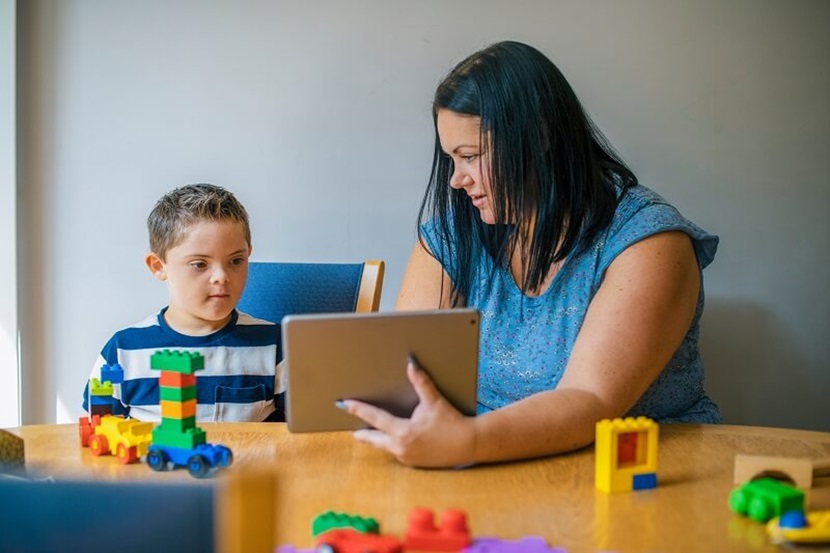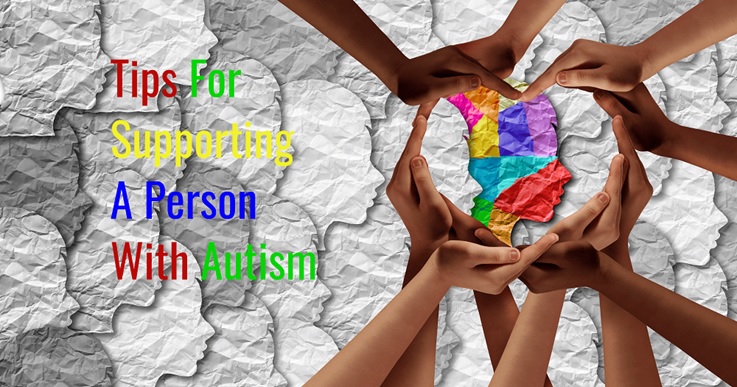Whether you are a friend of someone with autism, or you are the parent of a child with autism, your priority will always be looking for ways to improve life for your loved one. This article details some of the ways you can support someone who has autism, ensuring that you treat them respectfully, and giving ideas on how to engage autistic children in learning.
Be Respectful

If you are interacting with someone who has autism, and you are unfamiliar with them and feel unsure what is the appropriate way to act – just be normal. Understand that they are a person just like anyone else, and talk to them as you would with other people. It is important to know that they may have a different way of communicating than you, so you should be patient and respectful. For example, if they don’t make eye contact while you are talking to each other, don’t take this to mean they are uninterested in talking to you. Autism is a spectrum, so there are no general rules of what a person will be like or how things will affect them – just like anyone else, they are unique. So, you must take the time to notice how they interact and then communicate in a way that works for them.
Create Consistency

For the parents of a child with Autism Spectrum Disorder (ASD), consistency is one way you can support your child and help them to build skills. Children with ASD will often find it difficult to apply skills they have learnt in one environment to another environment – this could refer to skills they have learnt in school being applied at home. So, to ensure your child can implement the skills they learn in all environments, you can find out what they are learning at school or in their therapist’s office and then reinforce the techniques at home. Consistency also applies to how you communicate with your child and the way you deal with difficult behaviours. You should always react the same way to reinforce the lesson you would like them to learn from the event.
Learn Their Sensitivities

Whether you are the friend of someone with autism, or you have a child with autism, it is important to learn their sensitivities so that you will know how to interact pleasantly and avoid difficult situations. Children with autism can be hypersensitive to certain sensations, like smells, light, tastes, sounds, and touch. If you take note of which sensations and experiences trigger your child’s negative behaviours, then you can prevent situations more easily and troubleshoot problems. It may also be beneficial to notice what experiences make your child comfortable and calm, so you can create successful situations as well. If your friend has autism, then knowing their triggers and what makes them comfortable means you can have more enjoyable interactions.
Personalised Plan

Because autism is a spectrum, every child needs a personalised plan for their needs. To develop this plan, you will have to ask yourself a few questions, including:
- What are their strengths?
- What behaviours are disruptive?
- How do they learn? e.g) through doing, seeing, or listening
- What do they enjoy?
The therapy and disability services your child receives must be tailored to their specific requirements so that they can grow and enjoy a full life. The plan should create some structured activities you can complete, build on your child’s interests, and reinforce positive behaviours.
Be Creative With Learning

Sometimes children with autism have trouble engaging in learning, and so it is beneficial to be creative with how you are teaching them. If you incorporate their interests into learning tasks, then they may become more engaged in the activities. For example, if your child is fascinated with space, you can teach them history through learning about scientists from the past, teach English by having them write about space exploration, and teach art through getting them to draw a space station. When someone thinks and learns differently, you will need to think outside the box to help them learn. Utilise any assistance you can get – this could mean technological learning tools like apps which help children who have a visual learning style.
Disability Services Assistance

One of the best ways that parents can support children with autism is by enlisting the help of an expert disability services organisation. You will probably be able to receive funding through the NDIS, and then you can use this to get specialist services that will not only improve your child’s quality of life, but will make your own life easier too. Choose an NDIS registered provider that will offer experienced, understanding services, tailored to your child’s specific needs. NDIS support coordination is especially important, as this will give you the assistance of a support coordinator who will make sure your child’s NDIS plan will serve them the best it can.



















